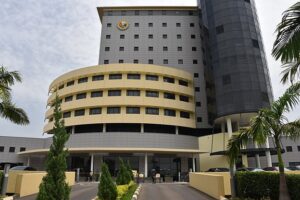Introduction
The world’s gaze is turning towards Africa, a continent pulsating with vibrant economies, untapped potential, and a booming entrepreneurial spirit. Are you ready to join the wave? If you dream of launching your business venture in a land ripe with opportunity, this list is your passport to success.
Forget scouring the continent, sifting through bustling hubs and burgeoning economies, to present you with the top 10 cities poised to propel your enterprise forward. Each entry unlocks a unique advantage, be it a tech-savvy talent pool, streamlined regulations, or access to vast consumer markets.
No more scheming through countless articles. No more wondering, “Where do I start?” This list is carefully curated, and now the journey is yours. So, buckle up, entrepreneur, and prepare to discover the city that aligns perfectly with your aspirations. Remember, Africa is rising, and with it, your chance to conquer the future.
Dive in and unveil the vibrant landscapes where your business dreams take flight!
1. Kigali, Rwanda
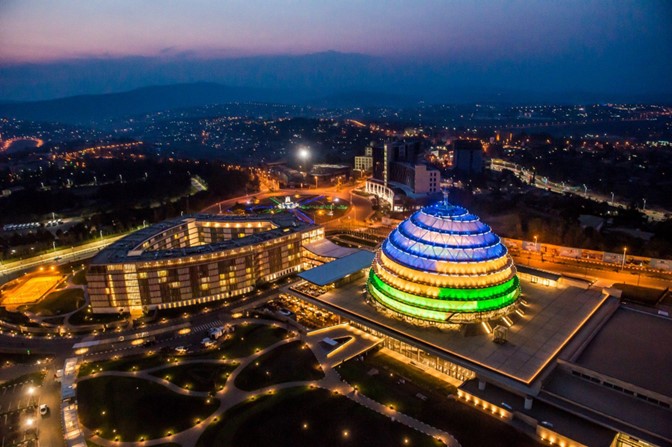
In Kigali, you’re at the epicenter of ambition. As Africa’s premier city for entrepreneurs, envision a government keenly focused on accelerating your business growth. Picture buzzing co-working spaces, a tech scene ripe with potential, and a supportive ecosystem propelling your venture forward.
Pros:
- Offers ease of doing business
- Provides access to tech-savvy talent
- Ensures a safe and secure environment
Cons:
- Presents a limited market size
- Highlights infrastructure gaps
- Economy: Kigali boasts East Africa’s fastest-growing economy (8% in 2022), fueled by tech and government support.
- Infrastructure: Modern, safe, and well-connected with reliable internet, growing co-working spaces, and continuous development.
- Cost of Living: Affordable compared to major African cities, offering diverse housing options and a growing middle class for potential customers.
2. Lagos, Nigeria
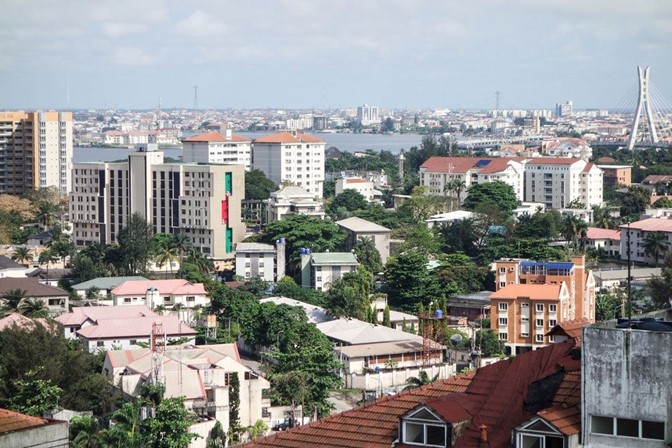
Lagos is Africa’s economic powerhouse, teeming with potential across diverse sectors. Imagine navigating a bustling metropolis where anything feels possible, with a vast consumer base and access to influential investors.
Pros:
- Drives a thriving economy
- Hosts diverse industries
- Provides access to capital
Cons:
- Involves bureaucratic challenges
- Presents infrastructure challenges
- Features a competitive landscape
- Economy: Africa’s booming giant, offering diverse opportunities but requiring strategic navigation.
- Infrastructure: Developing challenging but ambitious projects promising future improvement.
- Cost of Living: Higher than average, demanding strategic budgeting but presenting a growing consumer base.
3. Johannesburg, South Africa

In Johannesburg, you are tapping into the economic powerhouse of South Africa. Businesses are drawn to this city because, for you, it offers a strategic location, well-established infrastructure, and a multitude of diverse industries.
Pros:
- Functions as a financial hub
- Demonstrates infrastructure excellence
- Thrives in mining and manufacturing
Cons:
- Raises security concerns
- Exhibits economic inequality
- Economy: Established financial hub with diverse markets and regional access, but requires skilled navigation.
- Infrastructure: Reliable and developed compared to other African cities, but with higher operational costs.
- Cost of Living: Expensive, demanding careful budgeting and strategic housing choices.
4. Nairobi, Kenya
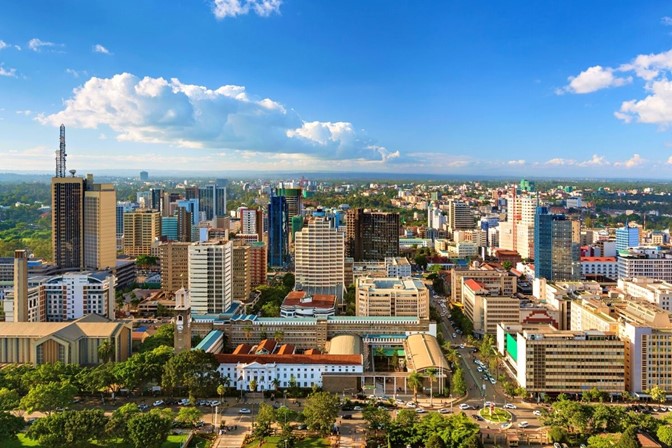
Here, innovation, a dynamic workforce, and the strategic geographical location in East Africa align seamlessly with your business pursuits. Nairobi beckons as a place where your entrepreneurial spirit can flourish amidst a landscape tailored for success.
Pros:
- Fosters innovation and technology
- Provides access to markets
- Implements business-friendly policies
Cons:
- Encounters traffic congestion
- Requires infrastructure development
- Economy: Rising East African hub with growing middle class and regional access, but requires strategic planning.
- Infrastructure: Developing rapidly with challenges, but offering potential through large-scale projects.
- Cost of Living: Relatively affordable with a growing middle class, but demands competitive pricing.
5. Casablanca, Morocco
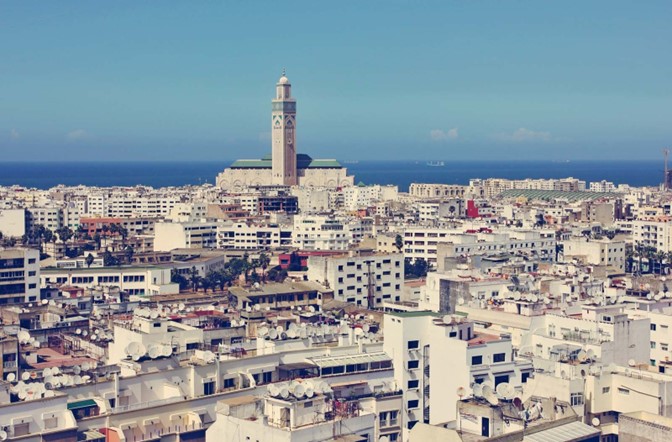
Casablanca serves as Morocco’s economic heartbeat, combining a rich history with modern business infrastructure and a strategic location.
Pros:
- Maintains economic stability
- Functions as a financial services hub
- Occupies a strategic location
Cons:
- Presents bureaucratic challenges
- Features language barriers
- Economy: Major financial hub with a service sector, tech scene, and diverse industries, offering access to European and African markets.
- Infrastructure: Developed with contrasts, but ongoing projects aim to improve efficiency.
- Cost of Living: Lower than major African cities, with a growing middle class, but requires competitive pricing and awareness of European influences.
6. Accra, Ghana
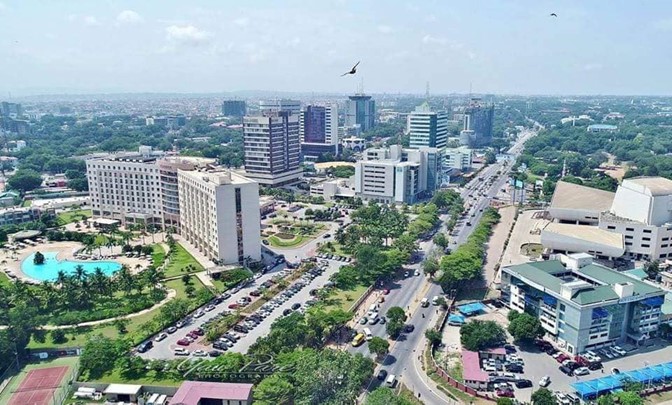
Accra, the capital of Ghana, has steadily risen as a business hub in West Africa, offering you a stable political environment and a growing economy.
Pros:
- Ensures political stability
- Abounds in natural resources
- Celebrates cultural diversity
Cons:
- Requires infrastructure development
- Faces a competitive market
- Economy: Rising West African hub with a focus on tech, services, and tourism, offering regional access and government support.
- Infrastructure: Improving with challenges, but large-scale projects promise future modernization.
- Cost of Living: Relatively affordable with a growing middle class, but demands competitive pricing and strategic planning.
7. Cape Town, South Africa
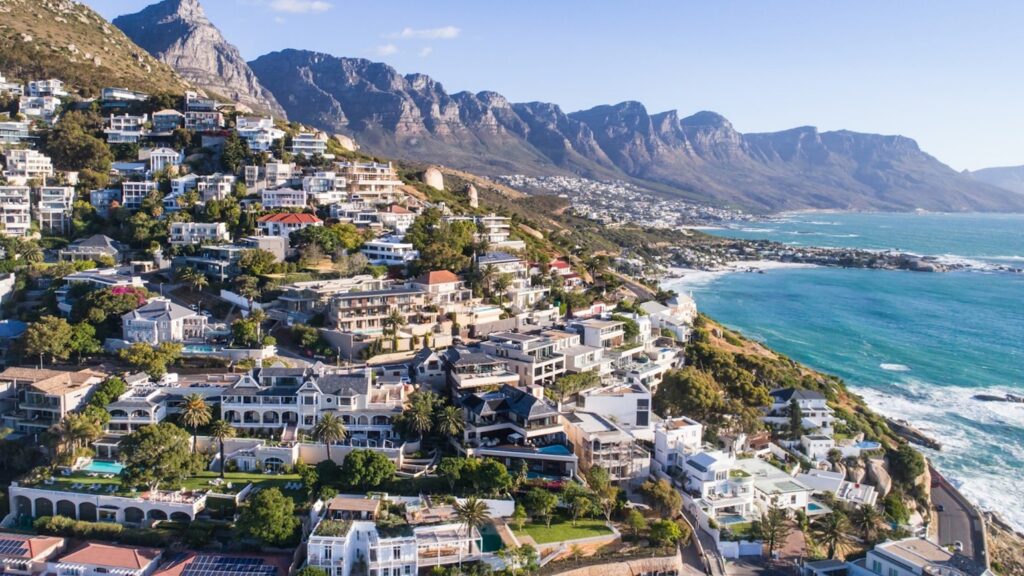
Cape Town seamlessly blends breathtaking scenery with a thriving business scene, offering a unique backdrop for your venture. Imagine working amidst stunning views, collaborating with like-minded individuals, and tapping into a robust tourism market.
Pros:
- Offers a lifestyle advantage
- Thrives as a creative hub
- Boasts developed infrastructure
Cons:
- Involves a high cost of living
- Presents a limited domestic market
Faces intense competition
- Economy: Diverse with tourism, tech, creative, and financial industries, offering innovation and global connections, but requiring strategic budgeting.
- Infrastructure: Well-developed with scenic location and sustainability focus, but might impact operational costs.
- Cost of Living: High but with diverse options, demanding careful budgeting and awareness of skilled workforce salary expectations.
8. Cairo, Egypt
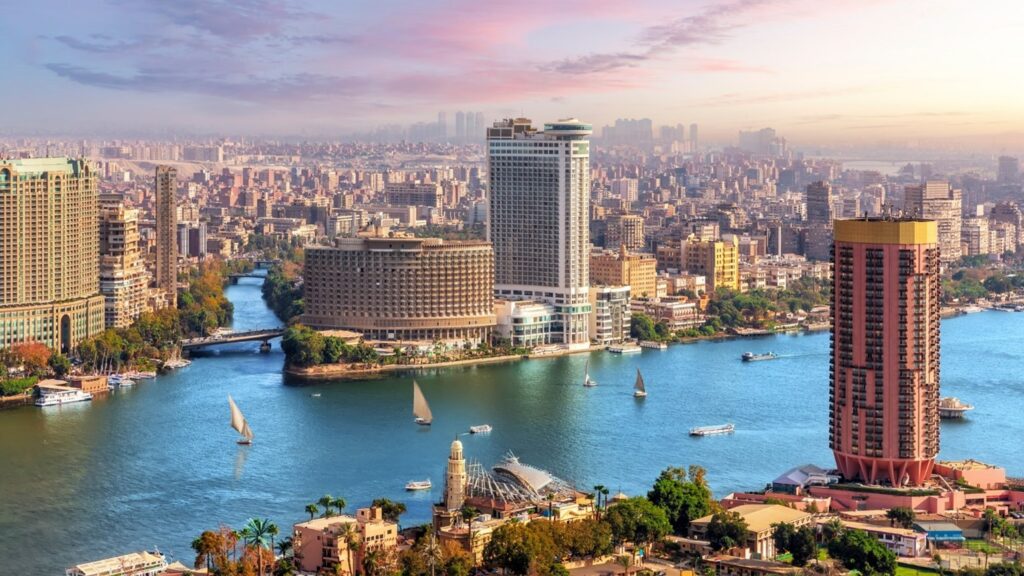
Cairo, with its rich history and strategic location, serves as a vital business hub in the Middle East and Africa, offering you a unique blend of tradition and modernity.
Pros:
- Holds historic significance
- Commands strategic trade routes
- Nurtures a growing consumer market
Cons:
- Experiences traffic congestion
- Entails administrative complexities
- Economy: Major hub with diverse industries, emerging tech scene, and regional access, but requiring adaptability to mixed development.
- Infrastructure: Ongoing improvements are addressing challenges, but mixed development and limited utility access persist.
- Cost of Living: Relatively affordable with diverse options and government subsidies, but be mindful of inflation and fluctuating economic factors.
9. Addis Ababa, Ethiopia
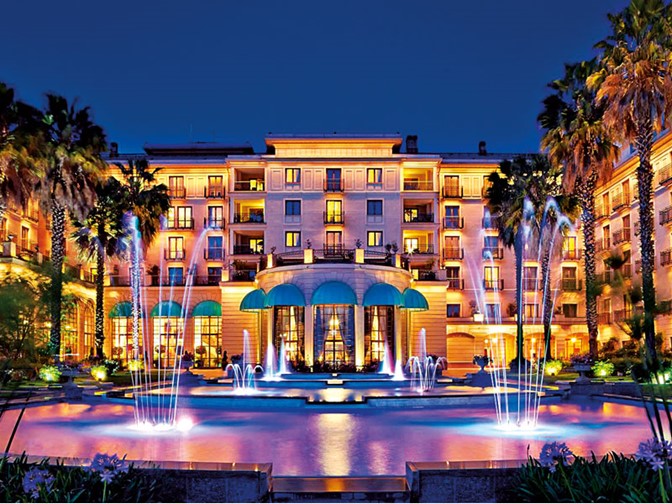
In Addis Ababa, you step into the heartbeat of Africa’s politics, witnessing not just impressive economic growth, but a city that invites you to seize emerging market opportunities. Here, your business ambitions align seamlessly with a dynamic destination on the rise.
Pros:
- Drives economic growth
- Occupies a strategic location
- Undergoes infrastructure development
Cons:
- Faces limited financial services
- Encounters regulatory complexities
- Economy: Political and diplomatic hub with a growing service sector and manufacturing potential, but requires adaptability to mixed development.
- Infrastructure: Developing with challenges, but ongoing upgrades aim to improve efficiency.
- Cost of Living: Moderate with the growing middle class, but requires competitive pricing and awareness of European influences.
10. Dakar, Senegal
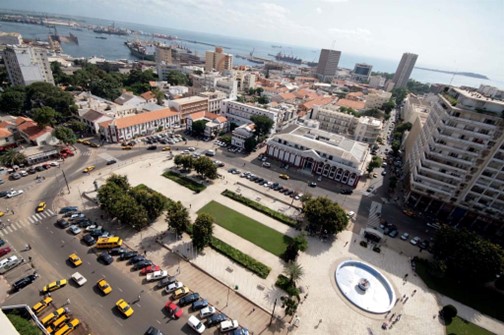
Dakar, situated on the westernmost tip of Africa, serves as a gateway to West Africa and has become a key player in the region’s economic development.
Pros:
- Ensures political stability
- Enhances regional connectivity
- Presents renewable energy potential
Cons:
- Requires infrastructure development
- Involves language diversity
Economy: Rising West African hub with a focus on tech, services, and tourism, offering regional access and government support.
Infrastructure: Improving with challenges, but large-scale projects promise future modernization.
Cost of Living: Relatively affordable with a growing middle class, but demands competitive pricing and strategic planning.
Overview of Top 10 Cities For Business In Africa

The entrepreneurial spirit beckons and Africa pulsates with possibilities. But where do you take your first step? Dive into the dynamic landscapes of 10 cities vying to be your launchpad.
Imagine thriving amidst Kigali’s tech boom, powered by the fastest-growing economy in Africa. Or envision your business flourishing in Lagos, the continent’s powerhouse, with its diverse markets and strategic connections. Each city offers unique strengths: Johannesburg’s established infrastructure and skilled workforce, Nairobi’s tech scene and growing middle class, Casablanca’s financial clout, and regional access. Explore Accra’s entrepreneurial support, Cape Town’s creative energy, and Cairo’s emerging tech sector. Discover the diplomatic hub of Addis Ababa or Dakar’s focus on tech and tourism.
The choice is yours. But remember, with careful research and a strategic approach, you can transform Africa’s potential into your own success story. Let this guide be your compass, pointing you toward the city that perfectly aligns with your vision. The continent awaits your contribution to its exciting future.
How to Choose Top 10 Cities For Business In Africa
To choose the top 10 cities for business in Africa, consider factors like;
- Industry: Each city has its strengths. Align your business with a city’s dominant industries.
- Market size: Consider your target market and the city’s demographics.
- Infrastructure: Reliable utilities, transportation, and communication are crucial.
- Cost of living: Budget wisely, considering housing, labor, and operational costs.
- Regulations: Understand legal and bureaucratic processes to avoid delays.
- Culture: Adapt to the local business culture and customs.
Pros & Cons of Top 10 Cities For Business In Africa
Pros:
- Offers rapidly growing economies: Many African cities boast impressive GDP growth, offering access to expanding markets.
- Provides a young and energetic population: A large, tech-savvy population presents both a potential workforce and a consumer base.
- Supports with government initiatives: Many governments actively encourage entrepreneurship through initiatives and incentives.
- Unveils untapped potential: Opportunity to be a pioneer in various sectors, shaping the future of African industries.
- Presents diverse cultures and experiences: Immerse yourself in vibrant cultures and gain unique perspectives.
Cons:
- Brings about political and economic instability: Certain countries face political unrest or economic fluctuations, requiring careful navigation.
- Limits infrastructure: Uneven infrastructure development can lead to challenges with transportation, utilities, and communication.
- Involves bureaucracy: Complicated bureaucratic processes can hinder business operations and require patience and expertise.
- Presents cultural differences: Adapting to local customs and business practices can take time and effort.
- Restricts access to funding: Access to capital might be more restricted than developed economies.
What to Watch Out For
- Limited domestic markets in some cities.
- Bureaucratic hurdles in certain locations.
- Infrastructure challenges like traffic congestion or power outages.
- Cultural differences and adaptation needs.
Pro Tips
- Network with local entrepreneurs and business communities.
- Seek expert advice from consultants and legal professionals.
- Conduct thorough due diligence and feasibility studies.
- Consider starting small and scaling gradually.
- Embrace the cultural nuances and build strong relationships.
Recap
Embark on your entrepreneurial journey in Africa by exploring the top 10 cities awaiting your innovative spirit. Picture yourself thriving in Kigali, where a government focused on your business growth propels you forward, or imagine navigating the bustling metropolis of Lagos, unlocking diverse markets and strategic connections.
Each city, from the economic powerhouse Johannesburg to the dynamic landscapes of Nairobi and the rich history of Cairo, offers unique strengths. As you choose your business destination, consider aligning with a city’s dominant industries, understanding local regulations, and adapting to cultural nuances.
With careful research and strategic planning, you can transform Africa’s potential into your own success story. So, entrepreneur, the continent eagerly awaits your contribution to its exciting future, and with the right city as your launchpad, success is within reach.





